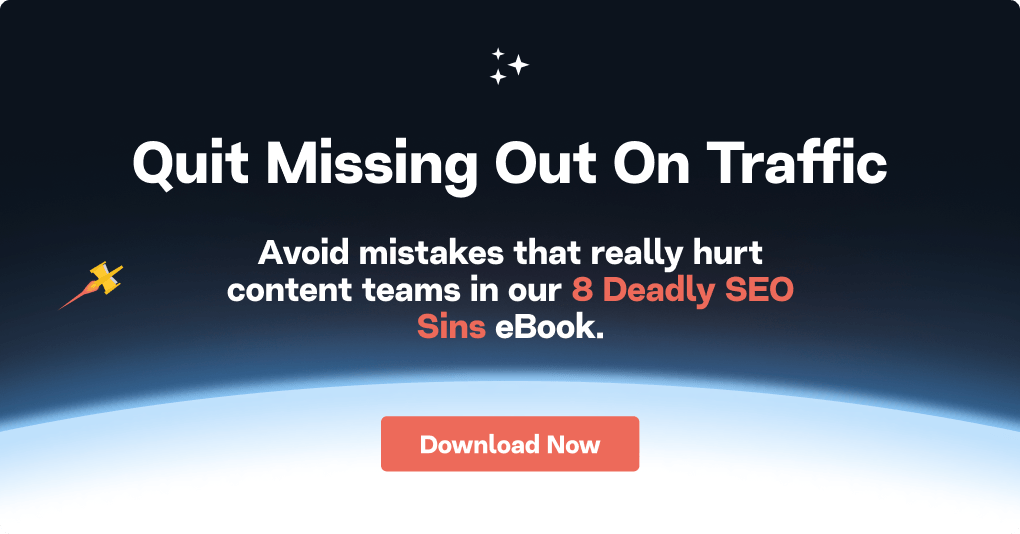Why Keyword Cannibalization Isn’t What You Think It Is
It’s surprising how many content marketers feel that keyword cannibalization is a simple and easy to diagnose problem. Nothing could be further from the truth. Cannibalization is a super complex issue and one of the most complicated things about SEO.
It’s also one of the most common mistakes people make. They believe that cannibalization is focusing on the same keyword with more than one page.
That is absolutely not what cannibalization is.
If your content team or SEO says you only should have one page for each keyword, I have a bus back to 2010 and I bought the tickets. You see, that line of thought is damning for your company and puts you at a huge competitive risk in large organizations.
The worst situation is when it manifests itself into a team “owning” the word and no-one else in the company can write about it. This actually happens at large companies (with three letters).
That has a terrible impact on the bottom line. But the reality is you may need to write 100 pages about one particular keyword in order to have the luxury of having Google’s favorite intent for the user’s location, the user’s search history, and the user’s behavior. If the user is logged in to Google your page may show and if they’re not, it may not.
To be present and cover every place you possibly can, you need to cover a lot of different types of users and learners. You have to cover it with:
- Long content
- Short content
- Visual content
- Video content for beginners
- Video content for experts
Now, all those pieces of content I just mentioned are focused on the same keyword. But that’s not cannibalization.
The reality is that self-styled SEO “gurus” drive this false data narrative. Their sole purpose lies in getting affiliate revenue from teaching you SEO. They use the one-page one-keyword approach because it’s easy to teach.
In this case KISS (keep it simple stupid) really is true! I’m not going to mince words.
It’s a stupid approach.
It doesn’t work. It certainly doesn’t work for B2B and it doesn’t work for high competition zones. It only works in a few very specific situations.
If you truly have two pages:
- That deliver the exact same information gain
- Don’t differentiate at all
- One of them converts at a high rate
- One of them doesn’t
That is cannibalization. It is your job to figure out how to solve that problem. It’s really hard to diagnose.
Having two pages, competing with one another to rank for the same term, isn’t a bad thing. It’s actually a good thing. Unfortunately the market believes it’s bad and that is super sad.
What you should do now
When you’re ready… here are 3 ways we can help you publish better content, faster:
- Book time with MarketMuse Schedule a live demo with one of our strategists to see how MarketMuse can help your team reach their content goals.
- If you’d like to learn how to create better content faster, visit our blog. It’s full of resources to help scale content.
- If you know another marketer who’d enjoy reading this page, share it with them via email, LinkedIn, Twitter, or Facebook.
